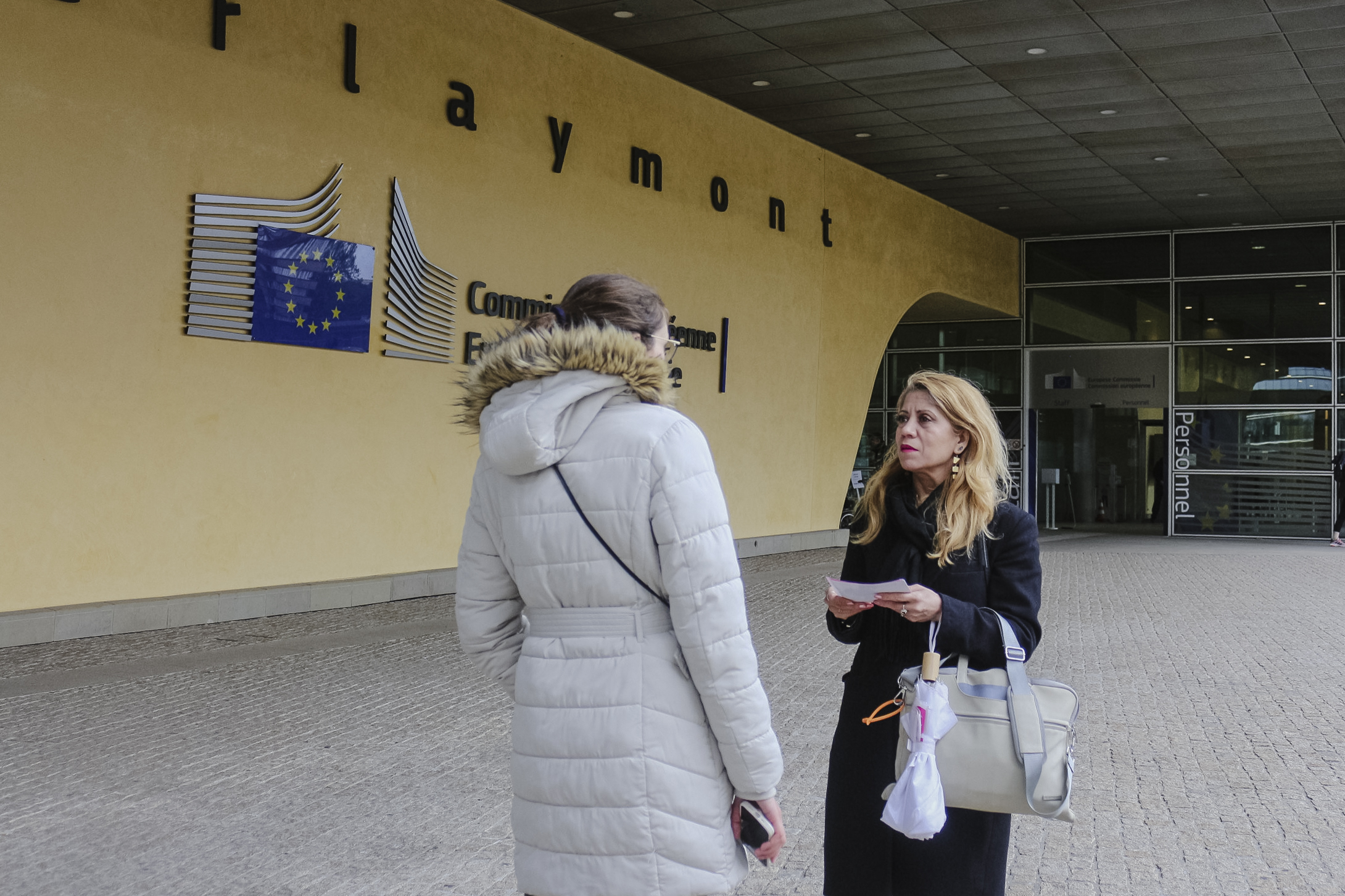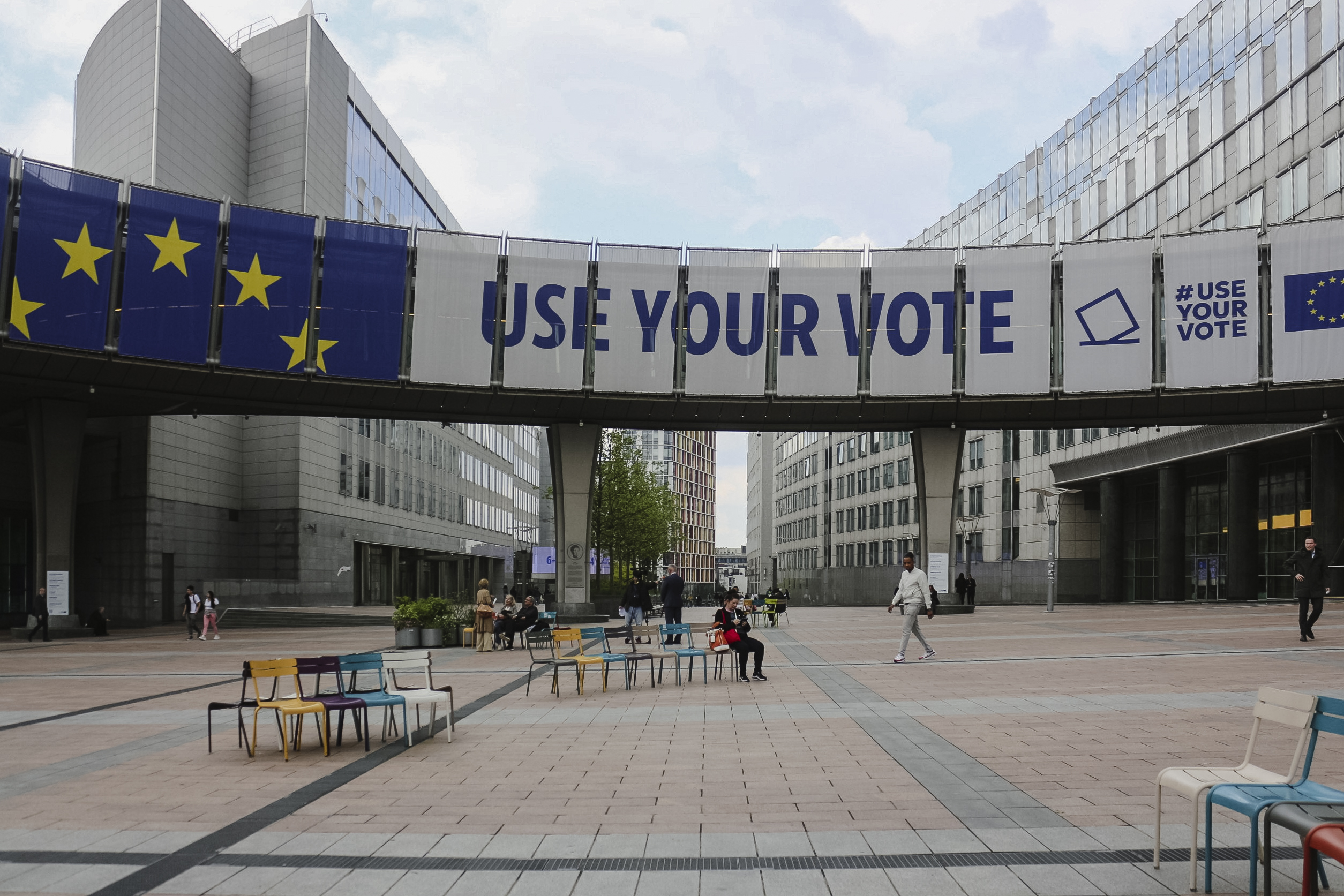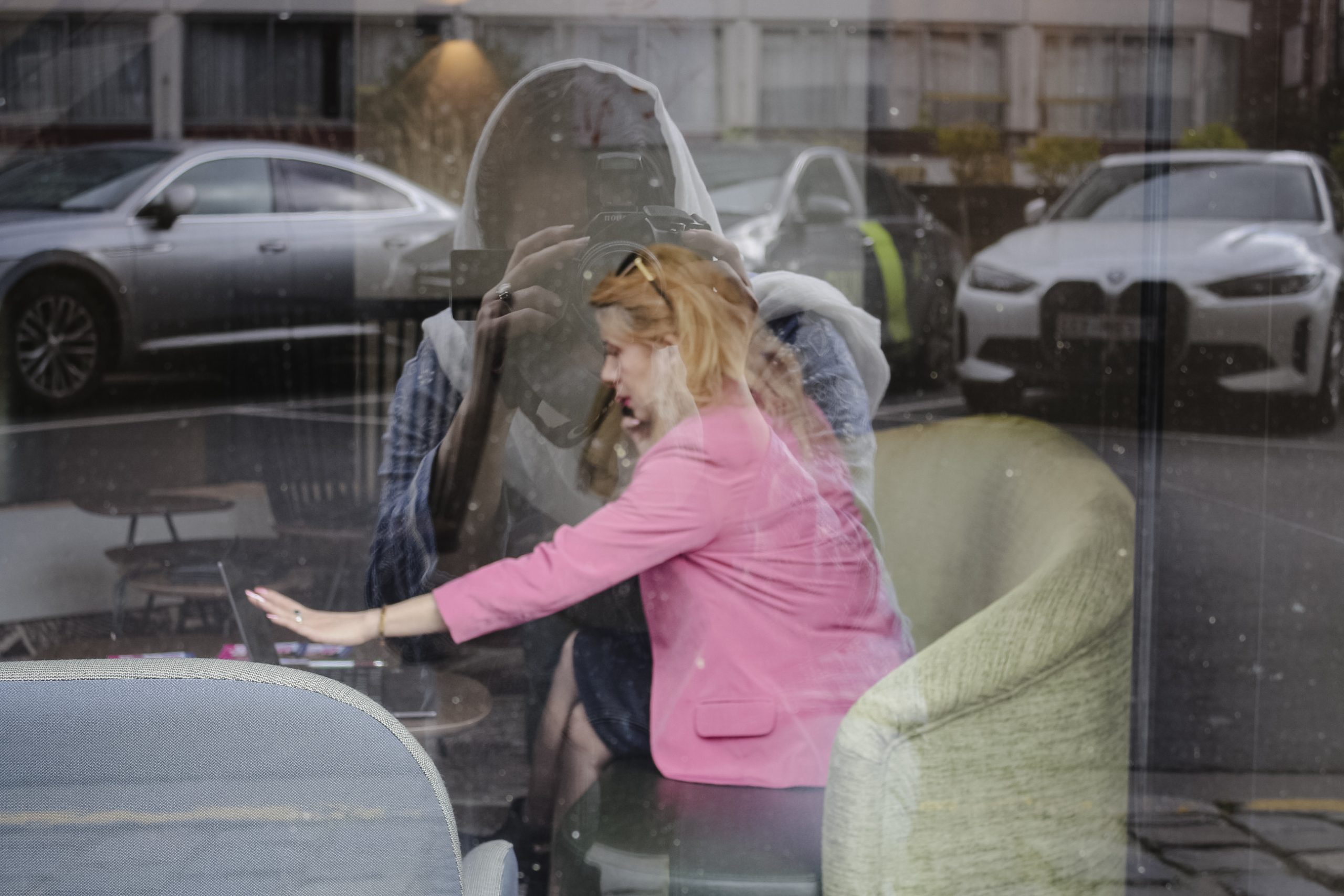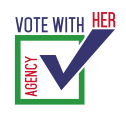
Advocating for Immigrant Rights and Gender Equality in the EU
Text and photos by Qudsia Noori
No one leaves their country without a specific reason. Factors such as war, poverty, and, most importantly, recent climate changes are all reasons for migrating from a country and hometown to seek refuge in a safe place with the aim of continuing to live and build a better life for oneself, family, and society.
But with migration and reaching a safe country free from the above-mentioned factors, the problems and struggles of an immigrant are not over but just the beginning of new challenges that need to be faced. All migrants, especially women, face many challenges, including learning a new language, racism, gender discrimination, lack of access to health care, strict asylum laws, non-acceptance of their educational documents and work experience, homelessness, the risk of forced return to the country of origin, and hundreds of other problems.
Today, the immigration issue is one that the European Union is dealing with, and unfortunately, the immigration policies of the European Union have become stricter in recent years. The European Parliament elections are an extremely important opportunity for the people of Europe and, at the same time, a fateful one for the migrants in these countries. The European Parliament elections will be held on June 6-9, 2024, and the citizens of 27 EU member states will go to the polls to elect 705 representatives.


In these elections, women with an immigration background, side by side with other candidates, are trying to open a way for themselves and their viewpoints in the European Parliament, and one of them is Mrs. Leilma Sadid.
Leilma Sadid is an Afghan immigrant who moved to Belgium years ago. She is working as an Assistant Researcher at Université libre de Bruxelles (ULB), Journalism Faculty, with Media Latitudes Belgium, and Brussels Morning as a freelance journalist. She is also the president of NADOE (Network of Afghanistan Diaspora in Europe), Co-founder of CLIAB (Center Laïque Iranien Afghanien de Belgique), a facilitator in UNHCR Belgium; Afghan Refugees and Women Committee, and has worked as a freelance journalist with VOA Dari TV-Radio, TOLOTV, Ariana News TV, 1TVaf, Salam Watandar Radio, Kabul Times, and Pajhwok.
As a politician, she began her campaign with a strong commitment to fighting against the injustices she has faced as an immigrant woman, including gender discrimination, racism, and various inequalities. Through her efforts, she has also amplified the voices of Afghan women, helping them to be heard.
As a woman who has experienced the hardships of immigration and has gone through many challenges, one of the topics she focuses on the most is immigration. She emphasizes that the laws regarding the acceptance of immigrants should not be strict.


Moreover, she considers gender discrimination, racism, the challenge of learning a new language, and being viewed as a disabled person by society to be painful and distressing. She adds, “In fact, these became challenges for me. By fighting against them, I was able to find my way, and during more or less 11 years of immigration, it became a reason to try harder than before and achieve many achievements.”
She explained the current challenge she faces as an immigrant woman: “I can’t call it a challenge; it’s more like fear! I am afraid that people who have a history of immigration or are from countries like Afghanistan, Iran, and Pakistan won’t support me as an Afghan woman.”
Addressing immigrant women, she added, “Immigrant women are extremely brave and capable. I suggest they not lose hope, try to learn a new language, stand on their own feet, try to integrate into society, take advantage of the opportunities, and make full use of the rights they have in these countries, including equal rights and the right to choose and be chosen, especially in the upcoming elections.” She also emphasized that despite the problems she faces as an immigrant woman, she will not stop fighting and will continue to stand up for what she wants: “I continue to pursue my goals and continue to fight to achieve them.”
Voting in the European Parliament elections is the biggest opportunity to decide what the European Union should focus on over the next five years. It means choosing who will raise your voice and make decisions on your behalf over the next five years, so use your fundamental right by voting and vote for those who can be a voice for everyone, especially immigrant women. If you are not eligible to vote, inform others and become a means for the implementation of democracy and the exercise of this basic right.
By casting your vote, you can support candidates who will advocate for the rights of all individuals, especially immigrant women facing discrimination and inequality. On June 9 you get to shape a Europe that stands for justice and opportunity for everyone.

